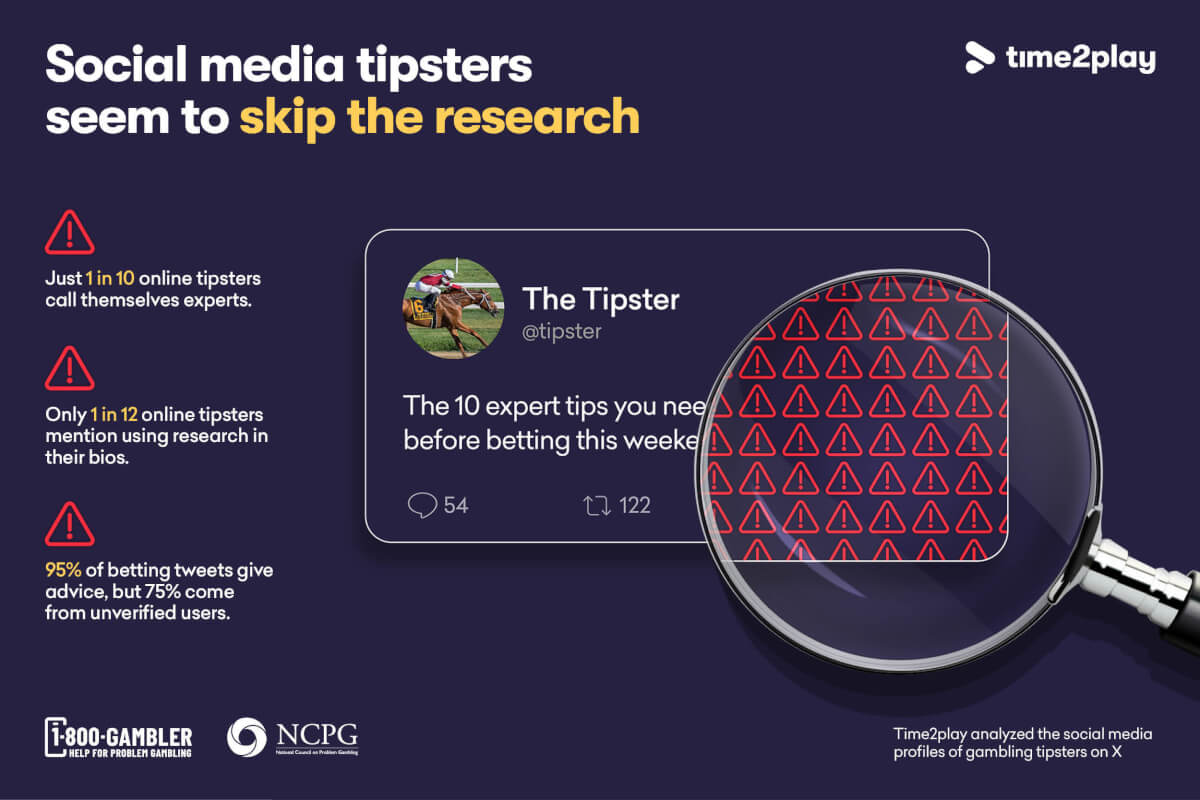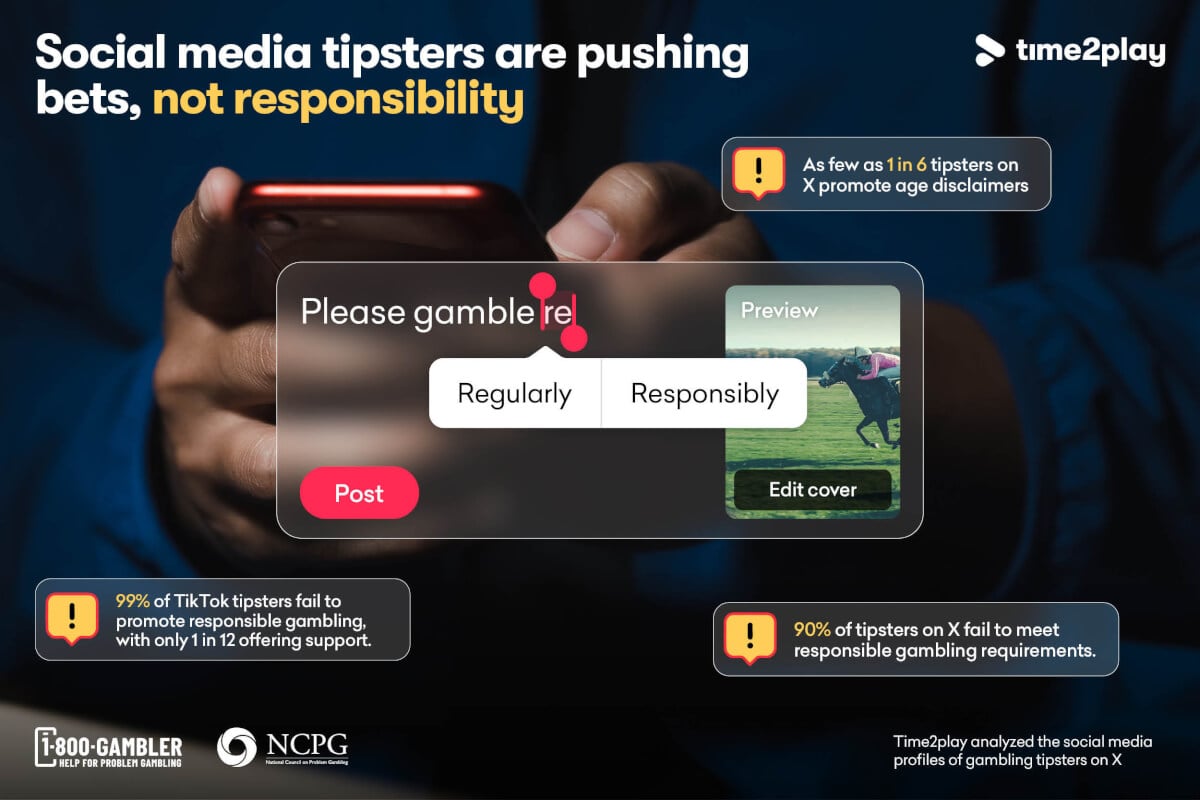
Enter Fable Games. A horse that, on paper, looks like a top contender for the Kentucky Derby. The only catch? He doesn’t exist. Yet, despite being nothing more than a fabrication, it’s been surprisingly easy to make him seem like the next big thing in racing.
The horse in question is actually 100% AI-generated and its name is an anagram of “gamble safe,” created to highlight a much bigger issue on social media: misinformation.
What is the relationship between sports betting and social media?
According to our research, 3 in 10 sports bettors cite social media as their top information source.
However, misinformation on social media can have concerning consequences within the sports betting sphere. Additional research shows false information can spread up to six times faster on social media, with fake reports, exaggerated claims, influencers, and anonymous experts able to mislead bettors.
With this in mind, we explored the problem of misleading advice from tipsters on social media, shedding light on the challenges of trust and legitimacy in the sports betting world.
Who’s really behind the information you trust?
You might assume that most tipsters rely on solid research and expertise. However, our analysis reveals a different reality.

Only 1 in 12 (8%) of betting tipsters on X mention using research or statistics to back their advice, and just 1 in 10 claim to be an expert or professional. Despite this, 95% of tweets from these accounts offer some form of betting advice — yet a staggering 75% of these tips come from unverified users.
With so much unverified information circulating, it’s a reminder to approach social media betting advice with caution and to always do your own research before placing a bet.
Social media tipsters are disregarding the importance of responsible gambling
We also found that a staggering 9 in 10 online tipsters on X fail to meet the legal requirements for promoting responsible gambling. Concerningly, only 1 in 6 include age disclaimers on their accounts, and just 1 in 8 provide links to gambling-awareness resources.

Over on TikTok, the situation is even worse. An overwhelming 99% of sports betting tipsters fail to promote responsible gambling, with only 1.2% encouraging their followers to gamble responsibly. Even more alarmingly, just 1 in 12 accounts offer any kind of support resources for problem gamblers.
With so many tipsters neglecting their responsibility, it’s a reminder to be cautious when taking betting advice online — especially from accounts that fail to prioritize player protection.
Are online tipsters betting on false promises?
Our research further uncovered a troubling reality: 8 million social media users on X are at risk of being misled by betting tipsters promising “easy money.”
On X, 1 in 5 tipster accounts suggest that their recommended bets will lead to bettors making guaranteed money, while on TikTok, 1 in 10 accounts make similar claims.
Yet the truth about betting success is rarely acknowledged. Shockingly, less than 1% (0.76%) of tipster accounts on X openly admit that success isn’t guaranteed — while the vast majority stay silent on the risks.
How can you safely use social media to bet responsibly?
With millions of X users exposed to unverified betting tipsters, it’s becoming harder than ever to distinguish between genuine advice and misleading claims. That’s why it’s essential to approach online betting tips with caution and prioritize responsible gambling habits.
Instead of relying on unverified tipsters, join reputable forums and online communities. Look for verified accounts and those affiliated with reputable organizations, or experts who reference research to back their advice. Be wary of anonymous profiles making bold profit claims and always check the facts.
It may be difficult to see if a tipster is offering logical, well-reasoned picks, or if they’re just picking favorites and hyping up big wins. When looking for professional advice, a good tipster should provide insights based on things such as statistics and form rather than just chasing popular bets.
Legitimate tipsters will also track and share their betting history, including losses. If they only showcase wins or hide losing bets from their record, they’re likely manipulating their success rate to seem more reliable than they actually are.
Visit our responsible gambling page for guidance and resources. For additional tips on safer gambling visit ncpgambling.org.
Methodology
Time2play analyzed hashtags from posts by tipsters across social media platforms X and TikTok, manually analyzing the content of posts to look for a number of factors associated with responsible gambling.








